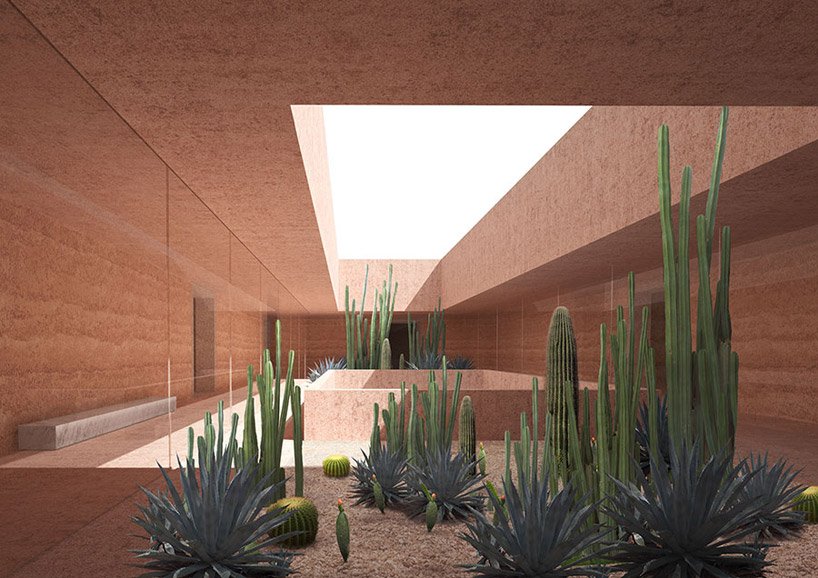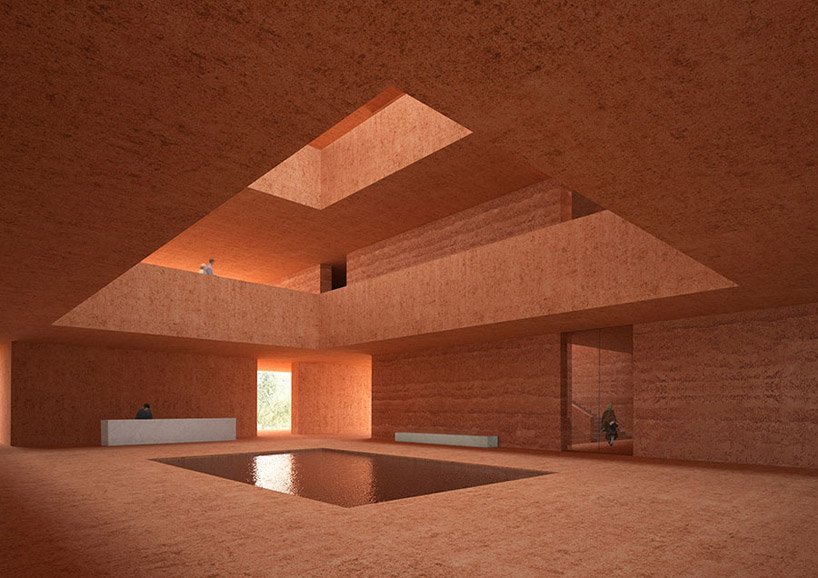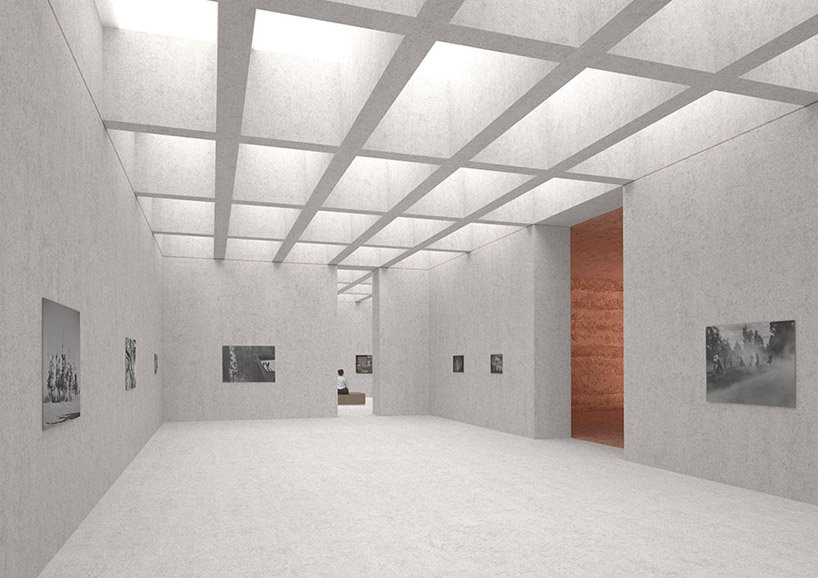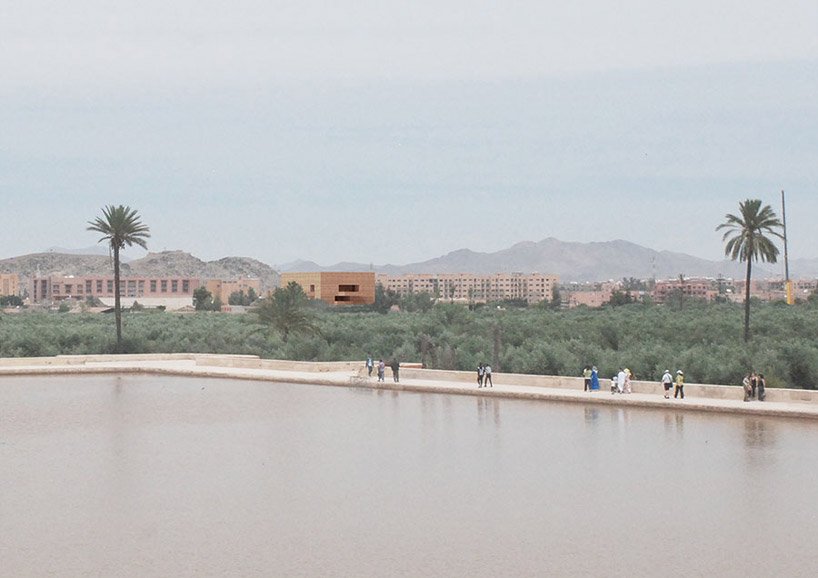The world’s largest free-standing museum dedicated to photography is set to be built in Morocco by British firm David Chipperfield Architects.
The Marrakech Museum for Photography and Visual Art (MMPVA) by David Chipperfield Architects will showcase a permanent collection of lens-based art and photography from the nineteenth century to the present and host a program of contemporary art exhibitions.

© David Chipperfield Architects
The museum will cover an area of approximately 6,000 square meters in the west part of Marrakech, adjacent to the twelfth-century Menara Gardens.
When completed space will feature galleries, a theatre, cafe, bookshop, public spaces, and educational facilities. A large atrium will form a centerpiece to the building with a rectangular pool of water on the ground floor. Varieties of desert plants in a garden will surround the atrium on the third floor.
“With a rich program of exhibitions, education and cultural exchange the museum will be the first such institution on the African continent,” said the firm. “It will broaden the artistic experience across cultural boundaries to form greater understanding and tolerance.”

© David Chipperfield Architects
In the meantime, the Marrakech Museum for Photography and Visual Art (MMPVA) is temporarily located at El Badi Palace and its first photography exhibition opens later this month. Other projects by David Chipperfield Architects include a gallery building at the Saint Louis Art Museum in Missouri, the Musée des Beaux-arts in Reims, France and the seafront Turner Contemporary Gallery in Margate, East Kent.
Here’s some information from the architects:
The Marrakech Museum for Photography and Visual Arts will be built at the edge of the historic 12th Century Menara Gardens in Marrakech. The Gardens – historically the link between the Atlas Mountains, life-giving water and the old walled city is a fitting place to build a museum which will surely become the 21st century link between the culturally diverse people of Morocco, her visitors and the international world of art and culture.
Marrakech, located in the heart of Morocco, hosts a vast and diverse pool of some 9 million international visitors annually and is the home of both the Marrakech International Film Festival and the Marrakech Biennale. The Marrakech Museum for Photography and Visual Arts will be a cultural epicenter in the region; its location will serve as the heart of a multi-point star drawing scholars, students, and visitors from around the world.

© David Chipperfield Architects
The Marrakech Museum for Photography and Visual Arts will be housed in a 6,000+ m2 state-of-the-art museum facility designed by renowned architect Sir David Chipperfield. This will be a transformative project for the Arts in Morocco and indeed all of Africa. When completed, MMP+ will house galleries, a theatre, café, bookshop, public spaces and extensive educational facilities – all of the components that create a lively innovative museum project.
Opening in January 2013 The Marrakech Museum for Photography and Visual Arts at the Badii Palace in Marrakech will be our temporary home while the permanent museum building is constructed. MMP+ at Badii Palace will have a rich, full program of exhibitions, education, cultural exchange, and outreach. Functioning as a “project” space, the Badii Palace site will be a vibrant laboratory for the development of the programs and exhibitions that will be housed in the permanent building when complete.

© David Chipperfield Architects
The Marrakech Museum for Photography and Visual Arts will focus its collecting across 3 easily definable and broadly interpretive genres of photography and lens-based media both static and moving. (a) Architecture / Design (b) Photojournalism (c) Fashion / Culture. Through tightly disciplined acquisitions MMP+ will build a collection that will allow diverse use both in its exhibition program and education. We will also retain the flexibility to exhibit a broad range of works of art across all media.
The Marrakech Museum for Photography and Visual Arts will form a hub for education across many areas of museum sciences. Our goal is to take students from Morocco and the region, whose interests are in curatorial studies, connoisseurship, museum operations, development, etc. and teach them both within the confines of the museum, interaction within their local communities, and by sending them abroad to work at some of the worlds great institutions and universities the hands-on practice of museum science.
With a rich program of exhibitions, education and cultural exchange the Museum will be the first such institution on the African Continent and will broaden the artistic experience across cultural boundaries to form greater understanding and tolerance.

